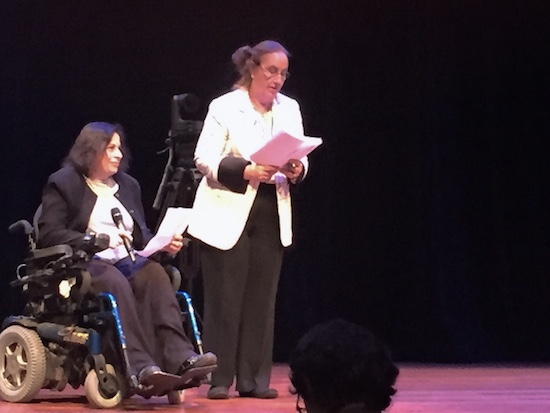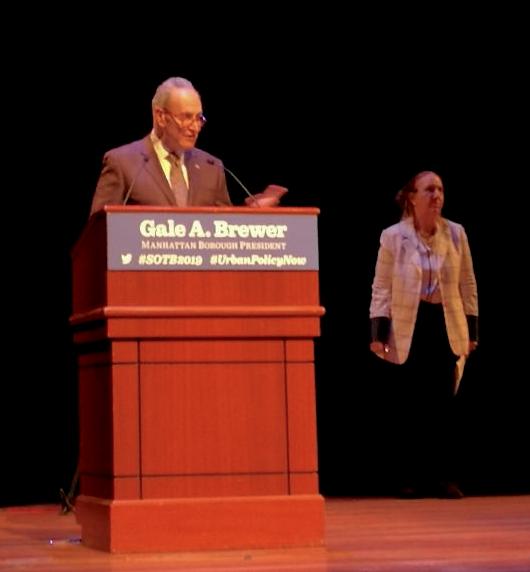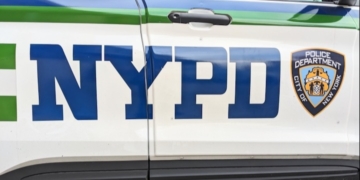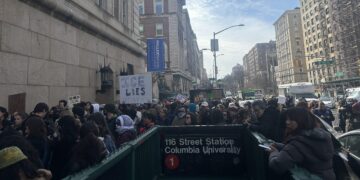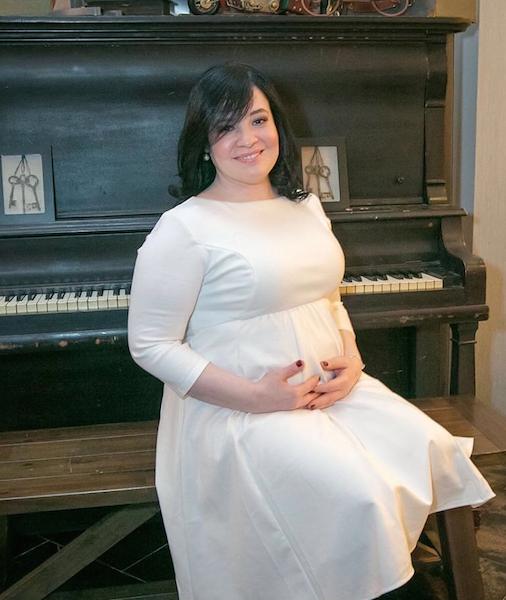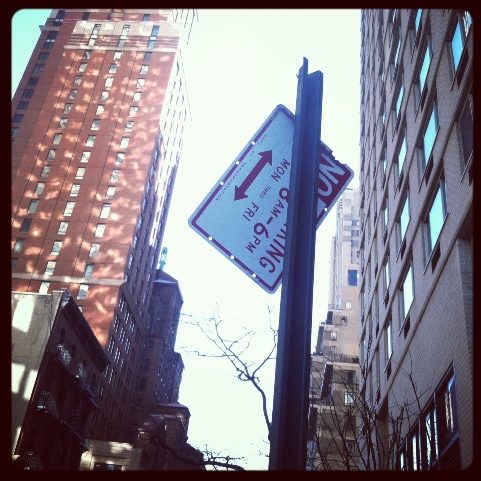By Chris Giordano
On Sunday afternoon, Manhattan Borough President Gale Brewer delivered her State of the Borough address to a packed auditorium at New York University’s Skirball Center.
After several minutes of spirited drumming by Annette A. Aguilar Bean Bloco to “wake up the crowd,” the Borough President was introduced by Devin Chu of Community Board 1, and U.S. Senator Chuck Schumer, who praised her years of effective public service (and promised there will be no wall).
The room was full of elected officials and city agency heads, including an impressive showing for Brewer’s own Upper West Side, including Congressman Jerry Nadler, Comptroller Scott Stringer, Assemblymember Linda Rosenthal, and Council Member Helen Rosenthal.
Borough President Brewer’s comments covered a lot of ground. Here is some information we found of particular interest for our neighborhood.
Building Voids
The Department of City Planning is addressing the issue of mechanical “voids” which can allow developers to add considerable height to buildings. DCP has certified a text amendment to New York City’s Zoning Resolution to limit the height and distance between these voids in residential buildings in high-density residential areas. Borough President Brewer decried what she called “fake floors.” She also underscored that the Uniform Land Use Review Process — ULURP — is a necessary process as it’s critical that the wishes of the public be heard and taken seriously.
Transportation
The Manhattan Borough President’s Office will be convening an Accessibility Task Force composed of advocates, experts and community members to address accessibility and offer solutions. The MBP Office’s survey of Manhattan subway station accessibility discovered: 54% of elevators require better cleaning, 37% of stations need improved signage, 81% of elevators lack alternate travel information should that elevator be out of service.
Budget
The MBP Office allocated a total of $20,100,000 in capital funding and approximately $500,000 in expense funds for fiscal year 2019. About half the capital funding was used for public school projects including classroom technology. The remainder was given to theaters and cultural groups, parks, playgrounds and gardens, and the creation and preservation of affordable housing.
Urban Policy Now Panel Discussion
Borough President Brewer hosted a conversation with Jonathan Bowles of the Center for an Urban Future, Juan Gonzalez, former columnist for the New York Daily News, Maya Wiley who is professor of Urban Policy & Management at The New School, and JoAnn Yoo, Executive Director of Development at the Asian American Federation.
Much of the discussion focused on the role technology can play in urban planning, including the technology chasm that exists for the 31% of New Yorkers who can’t afford broadband internet and whose access could be made possible if the federal government funded access in libraries; the role technology can play in solving our transit crisis by providing tools to improve traffic flow; the need to invest in education to help grow our middle-class workforce made necessary by the reality that 3.1 million New Yorkers do not have at least an associate’s degree; and the need for New York City’s policy makers to have a better understanding of our assets and negotiate for the public benefit. Finally, much was made in the panel discussion of “use value vs. exchange value” and the need for investment to take priority over exploitation.
The State of the Borough address concluded with Susan Scheer of the Institute of Career Development sharing issues faced by the community of disabled New Yorkers and solutions needed to create an inclusive society, and Uzo Iweala, of The Africa Center who discussed the mission of this newly established New York institution.
Chris Giordano is involved in the community in many ways, including as President of the 64th-67th Street Block Association. He has opposed the mechanical void at 50 West 66th Street.



